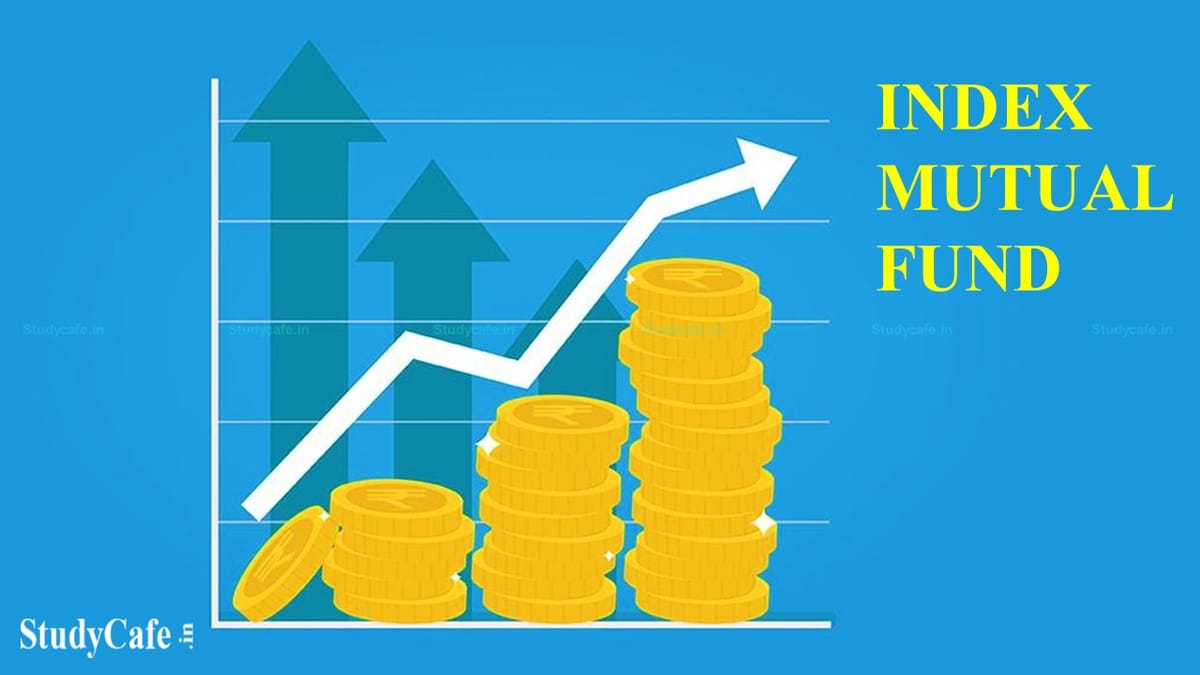Top 10 Index Mutual Funds to Invest in January 2022
Deepshikha | Jan 19, 2022 |

Top 10 Index Mutual Funds to Invest in January 2022
What are Index Mutual Funds?
A mutual fund that invests in a broader market index, such as the Sensex or the Nifty, is known as an index fund. Furthermore, all equities that make up the Sensex and/or Nifty will be included in the investment portfolio. These funds allow investors to gain access to a larger market sector for a lower cost.
The Sensex and Nifty indices indicate the leading corporations in terms of free-float market capitalisation. Because the companies in both indices are well-known and generate money, investors want to benefit from them. Because these indices are indexes rather than equities, investors must invest in the index constituents in the same proportions as the index.
An index fund follows a larger market index, such as the Sensex or Nifty, and its portfolio will contain the same equities in the same proportions as the Sensex or Nifty. Index funds are sometimes known as passive funds because they follow a specific index and do not require a lot of management.
The fund manager, who is in charge of the fund‘s investments, is in charge of the stocks that must be bought or sold following the underlying benchmark’s composition. In terms of return, the fund and the index produce nearly identical results. The discrepancy between the two causes tracking error, which the fund manager attempts to minimise.
When compared to actively managed funds, index funds have a lower expense ratio. An index fund will normally charge between.20 and.50 percent, whereas an actively managed fund will charge more. The lower the take rate for investors, the higher the expense ratio.
Investors that invest in index funds gain exposure to the index, which helps to mitigate unsystematic risk for the investors. Unsystematic risk is a risk that is linked to a certain stock or industry.
Index funds provide diversified exposure by including all of the main companies in the index. Investors can lessen the risk of staying invested in a single stock or industry by using auto diversification.
In the case of index funds, the asset allocation is not in the hands of the fund management, reducing the risk of investors losing money due to the fund manager’s poor decisions. This saves investors time, which they can put to better use by re-evaluating their holdings.
The redemption of index fund units results in a capital gain. Depending on how long the units are held, the gains can be either short-term or long-term.
If the units are sold within one year of the date of allotment, there will be a short-term capital gain, which will be taxed at 15%. Furthermore, long-term capital gains above Rs. 1,00,000 are taxed at 10% without the advantage of indexation.
For instance, if an investor has a long-term capital gain of Rs. 2 lacs and withdraws this amount after a year, the tax will be paid on Rs. 1 lac and the amount payable will be Rs. 10,000.
Investors with a long-term investment goal might consider index funds. The fund’s return may fluctuate in the near term, but in the long run, it normally evens out. For the fund investments to perform well, it is critical to stick to the fund over the specified time horizon.
When index fund units are redeemed, capital gains are realised, which can be short-term or long-term depending on the holding period.
Without the benefit of indexation, short-term capital gains are taxed at 15% and long-term capital gains are taxed at 10%. Long-term gains, on the other hand, are only taxable if they exceed Rs. 1,00,000.
Index funds can provide superior returns if investors keep to their investing horizon, which will help them reach their financial goals. This can include things like retirement, wealth accumulation, and so on.
When compared to other products, index funds often have a lower expense ratio. If two funds track the Nifty, for example, each will produce a similar return. The fund with the lowest expense ratio will provide you with a better return on your investment.
In case of any Doubt regarding Membership you can mail us at [email protected]
Join Studycafe's WhatsApp Group or Telegram Channel for Latest Updates on Government Job, Sarkari Naukri, Private Jobs, Income Tax, GST, Companies Act, Judgements and CA, CS, ICWA, and MUCH MORE!"